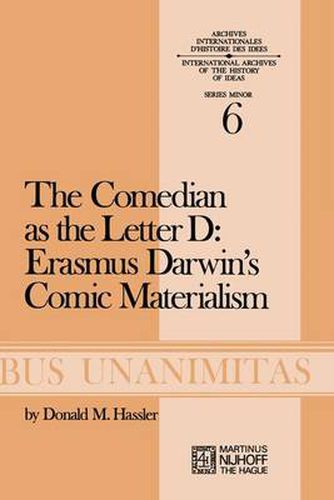Readings Newsletter
Become a Readings Member to make your shopping experience even easier.
Sign in or sign up for free!
You’re not far away from qualifying for FREE standard shipping within Australia
You’ve qualified for FREE standard shipping within Australia
The cart is loading…






This title is printed to order. This book may have been self-published. If so, we cannot guarantee the quality of the content. In the main most books will have gone through the editing process however some may not. We therefore suggest that you be aware of this before ordering this book. If in doubt check either the author or publisher’s details as we are unable to accept any returns unless they are faulty. Please contact us if you have any questions.
The Child is father of the Man; And I could wish my days to be Bound each to each by natural piety. William Wordsworth, Ode: Intimations of Immortality Wallace Stevens said somewhere that the theory of poetry is the life of poetry.l Charles Darwin, who likes poetry, recognized that at the eost of losing his appreciation of poetry and other things that delighted him in his youth, his mind had become a ‘machine for grinding generallaws out of large colleetions of facts.’ 2 Somewhere in between the polar positions of Stevens’ extreme aesthetic belief and Darwin’s extreme meehanistic belief lies the aesthetics of empirical thought and the whole modem Romantic tradition. There have been men in between who were both meehanists and poets, who both beIieved in automatic material meehanisms and tried to use the imagination. Erasmus Darwin was one of these in between figures. and since he lived early (1731-1802) in the modem scientific era he was one of the first. This older Darwin, the grandfather of Charles, has not been given due credit as a transitional figure in the development of the literature of our scientific era. Although historically and in terms of intelleetual stature the grandfather was a fanciful child compared to the giant grand soo, Erasmus Darwin’s habits of thought anticipated one of the most distinguishing charaeteristics of his grandson. (The genetic suggestive.
$9.00 standard shipping within Australia
FREE standard shipping within Australia for orders over $100.00
Express & International shipping calculated at checkout
This title is printed to order. This book may have been self-published. If so, we cannot guarantee the quality of the content. In the main most books will have gone through the editing process however some may not. We therefore suggest that you be aware of this before ordering this book. If in doubt check either the author or publisher’s details as we are unable to accept any returns unless they are faulty. Please contact us if you have any questions.
The Child is father of the Man; And I could wish my days to be Bound each to each by natural piety. William Wordsworth, Ode: Intimations of Immortality Wallace Stevens said somewhere that the theory of poetry is the life of poetry.l Charles Darwin, who likes poetry, recognized that at the eost of losing his appreciation of poetry and other things that delighted him in his youth, his mind had become a ‘machine for grinding generallaws out of large colleetions of facts.’ 2 Somewhere in between the polar positions of Stevens’ extreme aesthetic belief and Darwin’s extreme meehanistic belief lies the aesthetics of empirical thought and the whole modem Romantic tradition. There have been men in between who were both meehanists and poets, who both beIieved in automatic material meehanisms and tried to use the imagination. Erasmus Darwin was one of these in between figures. and since he lived early (1731-1802) in the modem scientific era he was one of the first. This older Darwin, the grandfather of Charles, has not been given due credit as a transitional figure in the development of the literature of our scientific era. Although historically and in terms of intelleetual stature the grandfather was a fanciful child compared to the giant grand soo, Erasmus Darwin’s habits of thought anticipated one of the most distinguishing charaeteristics of his grandson. (The genetic suggestive.